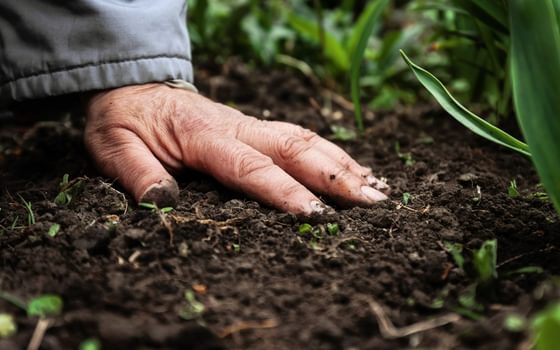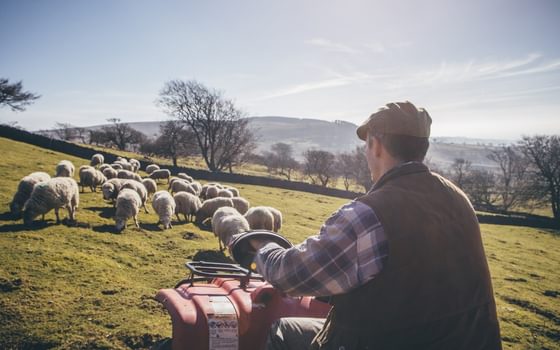Full nets and empty shelves
When it comes to seafood, the current crisis is one of oversupply not undersupply
26 March 2020
The sight of empty supermarket shelves has obviously caused panic and desperation for many people. For some domestic food producers though, it’s caused confusion. Those who have surplus product but no market now that pubs, restaurants, and some export markets have shut. When it comes to seafood, the current crisis is one of oversupply, not undersupply.
Covid-19 is influencing food producers at all levels in many different ways. For the UK fishing industry, the pinch is being felt from all sides. The recent collapse of the UK domestic restaurant and pub market alongside the critically important export market means the industry is in dire straits. With prices from some species dropping 85%, the cost of leasing quota (where fishers lease in additional quota from producer organisations) has become more expensive than the actual landed price, meaning fishers would lose money to fish. With many vessels now tied up, skippers and crew on share wages rather than salaries are left without an income.
Catching the fish is not the problem; it’s the ability to sell it. Annually, 80% of UK fish landings are exported to the EU, Asia and the United States, with langoustine, scallops, mackerel, and crab among the most popular. For the inshore fleet the majority of vessels in the UK have focussed on the rapidly growing market for whelks in South Korea. Farmed Scottish salmon is also a large export product. Despite this export focus, the UK is a net importer of seafood with 70% of the seafood consumed in the UK imported. The seafood market share in the UK is dominated by salmon, cod, shrimp, tuna, and haddock.
A combination of a reliance on restaurants and exporting what we catch means the UK fishing industry has developed a high dependence on these global markets making them vulnerable to shocks. This also means we as a country are reliant on imports and vulnerable. As a result, we are not resilient when it comes to changes, whether due to climate change, currency fluctuations, trade wars or indeed global pandemics.
There is a major need to connect local producers to local markets and importantly the urban centres, but first and foremost there is an urgent crisis of ensuring the fishing industry survives Covid-19. Defra have introduced some measures for the seafood industry, Seafish are collating industry needs to share with Defra, producer organisations are suggesting staggered landings and shorter trips. But we really need government to help fishermen in coastal communities link up with demand in UK cities. This would have the benefit of re-localising our seafood supply chain; helping fishermen keep their businesses going and providing urban centres with much needed supplies of healthy protein.
When it comes to seafood, the current crisis is one of oversupply, not undersupply
From inshore fishers I’ve spoken to, I’ve heard that their priorities are different depending on whether they have crew or not. If they’re share fishers or go to sea single-handed, then they need support and what’s really needed is the same as for a self-employed bailout. But if they are a vessel owner they need a guarantee to cover crew wages and support with their fixed costs like moorings and insurance.
An opportunity for government to intervene is clear: support to the self-employed throughout the economy and fishing is no different. Beyond that, support for some initial infrastructure including freezing and canning capacity, support with fixed costs and ensuring this is a first step in a long-term strategy to re-localise supply chains. The message to support your local fishing industry is being heard in fishing towns like Plymouth, but there is a role for the state to make sure this happens across the UK. The EU has responded with a “Coronavirus Response Investment Initiative” to support Member States to fight the crisis immediately.
There is also a tech opportunity to buy direct from fishers that government funding for research and development could catalyse. Support for fishmongers who need additional resource in terms of staff and increased freezer unit capacity is also necessary. In doing that, these changes could strengthen local economies, reduce the environment impacts of food miles, and build our resilience to future shocks.
In our ongoing work with Eastbourne fishermen’s CIC, NEF helped them get EU grant funding support for the first phase of their processing unit. We found out last month that a bid to the Local Enterprise Partnership for grant funding for workshops and a visitor centre has gone through to the second stage – over £2 million will totally transform the harbour over the medium-term. As part of this, we developed a Community Economic Development plan with fishermen and local stakeholders to ensure that processing and local markets for sustainable seafood could be established and turn the fishing quay into a central hub for the local economy. As construction starts for this site, the need for local supply chains is now clearer than ever.
Just as for many other industries, the days ahead are tough for the UK’s small-scale fishers. But if government intervenes now, it could lay the foundations to achieve what TV chefs and countless industry campaigns have failed, and set in motion a seafood market that is more localised, connected, and resilient.
Image: Pexels
Campaigns Blue New Deal Coronavirus response
Topics Fisheries & farming






